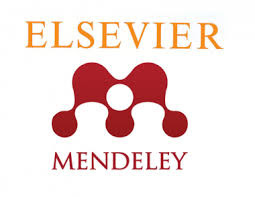Abstract
documentclass[11pt]{article}
usepackage{fullpage}
usepackage{amsfonts}
usepackage{amsmath}
usepackage{amssymb}
usepackage{amsthm}
ewtheorem{theorem}{Theorem}[section]
�egin{document}
itle{Hardy Hilbert spaces and its applications}
author{Praveen Sharma
Department of Mathematics, University of Delhi}
date{}
maketitle
section*{Abstract}
In this paper , we discuss the Hardy Hilbert Space on the open disk with center origin and radius unity. We have proved that $H^2$ Space is isomorphic to proper subspace of $L^2$ Space which has various applications in Quantumm Mechanics.
section{Preliminaries}
subsubsection{Definition(Inner Product Space)}
An extit{inner product space} is an vector space $W$ (over field $K=mathbb{R}ormathbb{C}$) with an inner product defined on it.
Here, an inner product is an function $<,> : W imes W o K$ which satisfies the following properties:--
�egin{enumerate}
item $<alpha u+v,w>hspace{1cm} =hspace{1cm} alpha<u,w> + <v,w>$
item $ overline{<u,v>} hspace{2cm} =hspace{1cm} <v,u> $
item $<u,u> hspace{2cm} geq 0$
item $ <u,u> = 0 hspace{1cm} Leftrightarrow u = 0$ hspace{1cm} ( extbf{ for all scalers $alphain K$ and for all vectors $u,v,win W$})
paragraph{Note1} extbf{ Every inner product space is an normed spaces with the norm induced by the inner product is given by}
�egin{center}
$||u|| = sqrt{<u,u>}$
end{center}
paragraph{Note2} extbf{An normed space $(W,||.||)$ is said to be complete if each cauchy sequence coverges in $W$.}
end{enumerate}
subsection{Hilbert Space}
An Hilbert Space is defined as the complete inner product space.smallskip
extbf{Example:-} smallskip
�egin{center}
�egin{large}
extbf{$l^2 = {(x_0,x_1,ldots ) : x_n in mathbb{C}, sum_{n=0}^infty |x_n|^2 <infty }$}end{large}
end{center}
i.e. all the elements of $l^2$ are the sequence of all the complex numbers that are square-summable. Inner product on $l^2$ is given by :-
�egin{center}
extbf{$ <(x_n)_{n=0}^infty , (y_n)_{n=0}^infty> = sum_{n=0}^infty{x_noverline{y_n}}$} hspace{1cm} ( extsc{it is an hilbert sequence space)}
end{center}
subsection{Definition(Orthonormal sets and sequences)}
An subset $X$ of an inner product space is said to be orthonormal if for all $u, v in X $ we have ,
$$ <u,v> = left{�egin{array}{ll}
0 & mathrm{if} u
eq v
||u||^2 & mathrm{if} u=v
end{array}
ight. .$$
paragraph{Note} extbf{If norm of each element of an orthogonal set $X$ is 1 then the set is said to be orthogonal. i.e for all $u,v in X$ we have, }
$$ <u,v> = left{ �egin{array}{ll} 0 & mathrm{if} u
eq v
1 & mathrm{if} u =v
end{array}
ight. $$
subsection{Definition(Orthonormal basis)}
An orthonormal subset $X$ of Hilbert space $W$ is said to be an orthonormal basis if span of $X$ is dense in $W$.i.e.
$$overline{spanX} = W $$
paragraph{Note}
Every Hilbert space $W
eq{0}$ has an orthonormal basis.
subsection{Definition(Separable Hilbert Space)}
An Hilbert-Space $W$ is said to be extit{separable} if there exist an countable set which is dense in $W$.smallskip
extbf{Example:} $l^2$ is an separable Hilbert space
paragraph{Note} Each orthonormal basis of an separable Hilbert space are countable.Therefore orthonormal basis of $l^2$ are countable
subsection*{Recall}
�egin{enumerate}
item An orthonormal sequence $(e_n)_{n=0}^infty$ is an orthonormal basis of an Hilbert - Space $W$
�egin{LARGE}$$Leftrightarrow$$end{LARGE}
for all $uin W$ we havehspace{2cm}$ sum_{n=0}^infty|<u,e_n>|^2 = ||u||^2$ cite{kreyszig1978introductory} hspace{0.5cm} extbf{Parseval identity}
item Let $(e_n)$ be an orthonormal sequence in an Hilbert-space then
$$ sum_{n=0}^inftyalpha_ne_n$$ converges in $W$
$$iff$$
the series $$sum_{n=0}^infty|alpha_n|^2$$ converges in $mathbb{R}$
end{enumerate}
section{THE HARDY-HILBERT SPACE}
subsection{DEFINITION}
{ It is defined as the space of all the analytic functions which have a power series representation about origin with square-summable complex coefficients. It is denoted by extbf{ $H^2$}.
$$ H^2 = { f : f(z) = sum_{n=0}^infty alpha_nz^n : sum_{n=0}^infty|alpha_n|^2 <infty}$$
Inner Product on $H^2$ is given by $$<f,g> =sum_{n=0}^infty a_noverline{b_n}$$ for $ f(z) = sum_{n=0}^infty a_nz^n hspace{0.5cm} and hspace{0.5cm} g(z) = sum_{n=0}^infty b_nz^nhspace{0.3cm} in hspace{0.2cm} H^2$
�egin{theorem}
extbf{The Hardy-Hilbert space is an separable Hilbert Space.}
end{theorem}
�egin{proof}
Define an function;--
$$ phi:l^2 o H^2$$
given by $$ (a_n)_{n=0}^infty o sum_{n=0}^infty a_nz^n$$
�egin{itemize}
item extbf{underline{ $phi$ is well defined}}
since hspace{1cm} $ (a_n)_{n=0}^infty in l^2 Rightarrow sum_{n=0}^infty |a_n|^2 <infty Rightarrow sum_{n=0}^infty a_nz^n $ hspace{1cm} which being an power series is an analytic function whose coefficients are square summable hence is in $H^2$
$ herefore phi$ is well defined
item extbf{underline{Clearly $phi$ is linear}}
item extbf{underline{ $phi$ is isometric}}
Fix $(a_n)_{n=0}^infty in l^2 $
then we have
$$phi((a_n)_{n=0}^infty) = ||sum_{n=0}^infty a_nz^n||_{H^2} = sqrt{sum_{n=0}^infty |a_n|^2} =||(a_n)_{n=0}^infty||_{l^2} $$
$ herefore phi$ is an isometric
$ herefore phi$ preserves the norm so that the inner product
item extbf{since isometry property implies one one property$ herefore phi$ is one one } cite{bhatia2009notes}
item extbf{underline{$phi$ is onto}}smallskip
Let $f in H^2$ then $f(z) = sum_{n=0}^infty a_nz^n$ where $sum_{n=0}^infty|a_n|^2<infty$medskip
extbf{ define} $x=(a_0,a_1,ldots)$
extbf{Since} $$||x||^2 =sum_{n=0}^infty |a_n|^2 <infty$$
extbf{$$ herefore xin l^2$$}
extbf{and}$$phi(x) = f $$
extbf{$$ hereforephi hspace{0.5cm} is hspace{0.5cm} onto$$}
end{itemize}
extbf{Therefore $phi$ is an vector space isomorphism which also preserves the inner product.
Since $l^2$ is an separable Hilbert space hence $H^2$ is also an separable Hilbert Space }
end{proof}
paragraph{Notations}
$mathbb{D}= {z:|z|<1}$ denotes the open unit disk about origin in $mathbb{C}$
$mathbb{S^1} ={z:|z|=1}$ denotes the unit circle about origin in $mathbb{C}$
�egin{theorem}
extbf{Radius of convergence of each function in $H^2$ is atleast $1$}
(i.e. each function in $H^2$ is analytic in the open unit disk $mathbb{D} $)
end{theorem}
�egin{proof}
Let $z_0in mathbb{D}$ is fixed $Rightarrowhspace{0.5cm} |z_0|<1$
$ herefore$ the geometric series $sum_{n=0}^infty |z_0|^n$ converges.
Let $fin H^2$ is arbitrary.Then
$$f(z) = sum_{n=0}^infty a_nz^n hspace{2cm} where hspace{1cm}
sum_{n=0}^infty|a_n|^2 <infty$$
Since the series $sum_{n=0}^infty|a_n|^2$ converges $Rightarrow$ $|a_n|^2 longrightarrow 0 Rightarrow|a_n|longrightarrow 0$
$ herefore (|a_n|)_{n=0}^infty$ is an convergent sequence hence bounded.
$ herefore exists M>0 $ such that
$$ |a_n|leq M hspace{2cm} forall hspace{1cm} ngeq0$$
Now
$$sum_{n=0}^infty|a_nz_0^n| leq Msum_{n=0}^infty|z_0|^n $$
where being an geometric series right hand side converges.
$ herefore$ By Comparison test the series $ sum_{n=0}^infty a_nz_0^n$ converges absolutely .
Since in Hilbert space absolute convergence implies convergence.
$ herefore$ the series $sum_{n=0}^infty a_nz_0^n$ converges in $H^2$ since $z_0in H^2$ is arbitrary $ herefore$ each function in $H^2$ is analytic in the unit disk $mathbb{D}$
end{proof}
subsection{Definition ($L^2(mathbb{S^1})$ space)}
It is defined as the space of all the equivalence classes of functions cite{royden2010real} that are Lebesgue measurable on $S^mathbb{1}$ and square integrable on $S^mathbb{1}$ with respect to Lebesgue measure normalized such that measure of $S^mathbb{1}$ is $1$.
$$ L^2(S^mathbb{1}) = {f: f hspace{0.2cm} ishspace{0.2cm} Lesbesgue hspace{0.2cm} measurable hspace{0.2cm} onhspace{0.2cm} mathbb{S^1} hspace{0.2cm} andhspace{0.3cm} frac{1}{2pi}int_0^{2pi}|f(e^{iota heta)}|^2d heta<infty } $$
Inner product on $L^2(mathbb{S^1})$ is given by -
$$<f,g> = frac{1}{2pi}int_0^{2pi} f(e^{iota heta})overline{g(e^{iota heta})}d heta$$
paragraph{Note} $L^2(mathbb{S^1})$ is an Hilbert-space with the orthonormal basis given by ${e_n: nin mathbb{Z}}$ where $e_n(e^{iota heta})= e^{iota n heta}.$
extbf{Therefore}
$$L^2(mathbb{S^1}) =left {f:f=sum_{n=-infty}^{n=infty}<f,e_n>e_n
ight}.$$.cite{martinez2007introduction}
subsubsection{Definition ($widehat{H^2}$ space)}
$$widehat{H^2} = {f in L^2(mathbb{S^1}): <f,e_n> =0hspace{0.2cm} forhspace{0.2cm} negativehspace{0.2cm} valuehspace{0.2cm} ofhspace{0.2cm} n }$$
$$widehat{H^2} = left{f in L^2(mathbb{S^1}) : f= sum_{n=0}^infty <f,e_n>e_n
ight }.$$
extbf{$widehat{H^2}$ is an subspace of $L^2(mathbb{S^1})$ whose negative Fourier coefficients are 0
$ herefore $ ${e_n : n=0,1,ldots }$ are orthonormal basis of $widehat{H^2}$}
�egin{theorem}
�egin{LARGE} extbf{$widehat{H^2}$ is an Hilbert-space}end{LARGE}
end{theorem}
�egin{proof}
Let $f in overline{widehat{H^2}}$ then there exist an sequence $(f_n)_{n=0}^infty$medskip
such that hspace{2cm} $f_n longrightarrow f$ as $nlongrightarrowinfty$medskip
Since hspace{2cm} $f_nin widehat{H^2}hspace{1cm} forall hspace{1cm} ngeq0$medskip
$ herefore hspace{3cm} <f_n,e_k>=0 hspace{1cm} forall ngeq0 hspace{1cm} and hspace{1cm} forall k<0$medskip
extbf{Now for each $k<0$ we have}medskip
$|<f_n,e_k> - <f,e_k>| leq |<(f_n-f,e_k>| leq||f_n - f||longrightarrow 0 hspace{0.3cm} ashspace{0.1cm} nlongrightarrowinfty$(Schwarz Inequality cite{kreyszig1978introductory})medskip
since $ hspace{3cm} <f_n,e_k>=0 hspace{1cm} forall ngeq0 hspace{1cm} Rightarrow hspace{1cm} <f,e_k>=0 $medskip
Since $k<0$ is arbitrary $ herefore hspace{1cm}<f,e_k>=0 hspace{1cm}forallhspace{1cm} k<0$medskip
$$ hereforehspace{1cm} fin widehat{H^2}$$
extbf{Therefore $widehat{H^2}$ is an closed subspace of $L^2(mathbb{S^1})$ Hence an Hilbert-Space}
end{proof}
�egin{theorem}
�egin{large}
extbf{The Hardy-Hilbert space can be identified as a subspace of $L^2(mathbb{S^1})$}
end{large}
end{theorem}
�egin{proof}
Define an function extbf{$$psi:H^2 owidehat{H^2}$$}
$$f o ilde{f}$$
where $f(z)=sum_{n=0}^infty a_nz^n$hspace{1cm} and hspace{1cm} $ ilde{f}=sum_{n=0}^infty a_ne_n$
�egin{itemize}
item extbf{underline{$psi$ is well defined}}medskip
Let $f in H^2$ hspace{0.5cm} Then hspace{0.5cm} $f(z)=sum_{n=0}^infty a_nz^n$ hspace{0.5cm} where hspace{0.5cm} $sum_{n=0}^infty |a_n|^2 <infty$medskip
Then by extbf{(recall 2)} the series $ ilde{f} =sum_{n=0}^infty a_ne_n $ converges in $widehat{H^2}$medskip
$ hereforepsi$ hspace{0.5cm} is
hspace{0.5cm} wellhspace{0.5cm} defined
item extbf{underline{Clearly $psi$ is linear}}medskip
item extbf{underline{$psi$ is an isometry}}medskip
For any arbitrary $fin H^2$ where $f(z)=sum_{n=0}^infty a_nz^n$ we have:-
$$ || psi(f)|| = || ilde{f}|| = frac{1}{2pi}int_0^{2pi}| ilde{ f}(e^{iota heta}|^2d heta $$medskip
extbf{Now}
$$frac{1}{2pi}int_0^{2pi} | ilde{f}(e^{iota heta})|^2 d heta = frac{1}{2pi}int_0^{2pi}(sum_{n=0}^infty a_ne^{iota n heta})(overline{sum_{m=0}^infty a_me^{iota m heta}}) $$
hspace{7cm} = $frac{1}{2pi}int_0^{2pi}sum_{n=0}^infty sum_{m=0}^infty a_noverline{a_m}e^{iota(n-m) heta} d heta$
hspace{7cm} = $sum_{n=0}^infty |a_n|^2$ hspace{1cm} extbf{(since $frac{1}{2pi} int_0^{2pi} e^{iota(n-m) heta} = delta_{nm}$)}
hspace{7cm} = $||f||^2$
Since $fin H^2$ is arbitrary
extbf{$$ herefore ||psi(f)||hspace{1cm} = hspace{1cm}||f||hspace{1cm} forall hspace{0.5cm} fin H^2$$}
�egin{large}
extbf{Therefore $psi$ is an isometry. Hence it preserves the inner product
Isometry $Rightarrow$ one one property. $ herefore psi$ is one one.}
end{large}
item extbf{underline{$psi$ is Onto}}
Let $ ilde{f}in widehat{H^2}$. Then $ ilde{f}=sum_{n=0}^infty<f,e_n>e_n$
where $<f,e_1>,<f,e_2>,ldots$ are Fourier coefficients of f with respect to the orthonormal basis ${e_n: nin mathbb{N}}.$
extbf{Then by Parseval relation we have}
$$sum_{n=0}^infty |<f,e_n>|^2 = ||f||^2 < infty $$
extbf{ Define} $$ f =sum_{n=0}^infty a_nz^n hspace{1cm} where hspace{1cm} a_n = <f,e_n>hspace{1cm} forallhspace{1cm} ngeq0$$
extbf{ Since} $$ sum_{n=0}^infty |a_n|^2 = sum_{n=0}^infty |<f,e_n>|^2 = ||f||^2 < infty $$
extbf{Therefore}
$$fin H^2$$
extbf{That is for each $ ilde{f}in widehat{H^2}$ there exist $fin H^2$ such that $psi(f) = ilde{f}$
Therefore $psi$ is onto}medskip
extbf{ That is $psi$ is an vector space isomorphism which also preserves the norm. Therefore $H^2$ can br identified as a subspace of the $L^2(mathbb{S^1})$ space}
end{itemize}
end{proof}
section{ extbf{ Applications} }
�egin{enumerate}
item In the mathematical rigrous formulation of Quantum Mechanics, developed by extbf{Joh Von Neumann}' the position and momentum states for a single non relavistic spin 0 Particle is the space of all the square integrable functions($L^2$). But $L^2$ have some undesirable properties and $H^2$ is much well behaved space so we work
with $H^2$ instead of $L^2$.
end{enumerate}
�ibliographystyle{plain}
�ibliography{my}
end{document}
documentclass[11pt]{article}
usepackage{fullpage}
usepackage{amsfonts}
usepackage{amsmath}
usepackage{amssymb}
usepackage{amsthm}
ewtheorem{theorem}{Theorem}[section]
�egin{document}
itle{Hardy Hilbert spaces and its applications}
author{Praveen Sharma
Department of Mathematics, University of Delhi}
date{}
maketitle
section*{Abstract}
In this paper , we discuss the Hardy Hilbert Space on the open disk with center origin and radius unity. We have proved that $H^2$ Space is isomorphic to proper subspace of $L^2$ Space which has various applications in Quantumm Mechanics.
section{Preliminaries}
subsubsection{Definition(Inner Product Space)}
An extit{inner product space} is an vector space $W$ (over field $K=mathbb{R}ormathbb{C}$) with an inner product defined on it.
Here, an inner product is an function $<,> : W imes W o K$ which satisfies the following properties:--
�egin{enumerate}
item $<alpha u+v,w>hspace{1cm} =hspace{1cm} alpha<u,w> + <v,w>$
item $ overline{<u,v>} hspace{2cm} =hspace{1cm} <v,u> $
item $<u,u> hspace{2cm} geq 0$
item $ <u,u> = 0 hspace{1cm} Leftrightarrow u = 0$ hspace{1cm} ( extbf{ for all scalers $alphain K$ and for all vectors $u,v,win W$})
paragraph{Note1} extbf{ Every inner product space is an normed spaces with the norm induced by the inner product is given by}
�egin{center}
$||u|| = sqrt{<u,u>}$
end{center}
paragraph{Note2} extbf{An normed space $(W,||.||)$ is said to be complete if each cauchy sequence coverges in $W$.}
end{enumerate}
subsection{Hilbert Space}
An Hilbert Space is defined as the complete inner product space.smallskip
extbf{Example:-} smallskip
�egin{center}
�egin{large}
extbf{$l^2 = {(x_0,x_1,ldots ) : x_n in mathbb{C}, sum_{n=0}^infty |x_n|^2 <infty }$}end{large}
end{center}
i.e. all the elements of $l^2$ are the sequence of all the complex numbers that are square-summable. Inner product on $l^2$ is given by :-
�egin{center}
extbf{$ <(x_n)_{n=0}^infty , (y_n)_{n=0}^infty> = sum_{n=0}^infty{x_noverline{y_n}}$} hspace{1cm} ( extsc{it is an hilbert sequence space)}
end{center}
subsection{Definition(Orthonormal sets and sequences)}
An subset $X$ of an inner product space is said to be orthonormal if for all $u, v in X $ we have ,
$$ <u,v> = left{�egin{array}{ll}
0 & mathrm{if} u
eq v
||u||^2 & mathrm{if} u=v
end{array}
ight. .$$
paragraph{Note} extbf{If norm of each element of an orthogonal set $X$ is 1 then the set is said to be orthogonal. i.e for all $u,v in X$ we have, }
$$ <u,v> = left{ �egin{array}{ll} 0 & mathrm{if} u
eq v
1 & mathrm{if} u =v
end{array}
ight. $$
subsection{Definition(Orthonormal basis)}
An orthonormal subset $X$ of Hilbert space $W$ is said to be an orthonormal basis if span of $X$ is dense in $W$.i.e.
$$overline{spanX} = W $$
paragraph{Note}
Every Hilbert space $W
eq{0}$ has an orthonormal basis.
subsection{Definition(Separable Hilbert Space)}
An Hilbert-Space $W$ is said to be extit{separable} if there exist an countable set which is dense in $W$.smallskip
extbf{Example:} $l^2$ is an separable Hilbert space
paragraph{Note} Each orthonormal basis of an separable Hilbert space are countable.Therefore orthonormal basis of $l^2$ are countable
subsection*{Recall}
�egin{enumerate}
item An orthonormal sequence $(e_n)_{n=0}^infty$ is an orthonormal basis of an Hilbert - Space $W$
�egin{LARGE}$$Leftrightarrow$$end{LARGE}
for all $uin W$ we havehspace{2cm}$ sum_{n=0}^infty|<u,e_n>|^2 = ||u||^2$ cite{kreyszig1978introductory} hspace{0.5cm} extbf{Parseval identity}
item Let $(e_n)$ be an orthonormal sequence in an Hilbert-space then
$$ sum_{n=0}^inftyalpha_ne_n$$ converges in $W$
$$iff$$
the series $$sum_{n=0}^infty|alpha_n|^2$$ converges in $mathbb{R}$
end{enumerate}
section{THE HARDY-HILBERT SPACE}
subsection{DEFINITION}
{ It is defined as the space of all the analytic functions which have a power series representation about origin with square-summable complex coefficients. It is denoted by extbf{ $H^2$}.
$$ H^2 = { f : f(z) = sum_{n=0}^infty alpha_nz^n : sum_{n=0}^infty|alpha_n|^2 <infty}$$
Inner Product on $H^2$ is given by $$<f,g> =sum_{n=0}^infty a_noverline{b_n}$$ for $ f(z) = sum_{n=0}^infty a_nz^n hspace{0.5cm} and hspace{0.5cm} g(z) = sum_{n=0}^infty b_nz^nhspace{0.3cm} in hspace{0.2cm} H^2$
�egin{theorem}
extbf{The Hardy-Hilbert space is an separable Hilbert Space.}
end{theorem}
�egin{proof}
Define an function;--
$$ phi:l^2 o H^2$$
given by $$ (a_n)_{n=0}^infty o sum_{n=0}^infty a_nz^n$$
�egin{itemize}
item extbf{underline{ $phi$ is well defined}}
since hspace{1cm} $ (a_n)_{n=0}^infty in l^2 Rightarrow sum_{n=0}^infty |a_n|^2 <infty Rightarrow sum_{n=0}^infty a_nz^n $ hspace{1cm} which being an power series is an analytic function whose coefficients are square summable hence is in $H^2$
$ herefore phi$ is well defined
item extbf{underline{Clearly $phi$ is linear}}
item extbf{underline{ $phi$ is isometric}}
Fix $(a_n)_{n=0}^infty in l^2 $
then we have
$$phi((a_n)_{n=0}^infty) = ||sum_{n=0}^infty a_nz^n||_{H^2} = sqrt{sum_{n=0}^infty |a_n|^2} =||(a_n)_{n=0}^infty||_{l^2} $$
$ herefore phi$ is an isometric
$ herefore phi$ preserves the norm so that the inner product
item extbf{since isometry property implies one one property$ herefore phi$ is one one } cite{bhatia2009notes}
item extbf{underline{$phi$ is onto}}smallskip
Let $f in H^2$ then $f(z) = sum_{n=0}^infty a_nz^n$ where $sum_{n=0}^infty|a_n|^2<infty$medskip
extbf{ define} $x=(a_0,a_1,ldots)$
extbf{Since} $$||x||^2 =sum_{n=0}^infty |a_n|^2 <infty$$
extbf{$$ herefore xin l^2$$}
extbf{and}$$phi(x) = f $$
extbf{$$ hereforephi hspace{0.5cm} is hspace{0.5cm} onto$$}
end{itemize}
extbf{Therefore $phi$ is an vector space isomorphism which also preserves the inner product.
Since $l^2$ is an separable Hilbert space hence $H^2$ is also an separable Hilbert Space }
end{proof}
paragraph{Notations}
$mathbb{D}= {z:|z|<1}$ denotes the open unit disk about origin in $mathbb{C}$
$mathbb{S^1} ={z:|z|=1}$ denotes the unit circle about origin in $mathbb{C}$
�egin{theorem}
extbf{Radius of convergence of each function in $H^2$ is atleast $1$}
(i.e. each function in $H^2$ is analytic in the open unit disk $mathbb{D} $)
end{theorem}
�egin{proof}
Let $z_0in mathbb{D}$ is fixed $Rightarrowhspace{0.5cm} |z_0|<1$
$ herefore$ the geometric series $sum_{n=0}^infty |z_0|^n$ converges.
Let $fin H^2$ is arbitrary.Then
$$f(z) = sum_{n=0}^infty a_nz^n hspace{2cm} where hspace{1cm}
sum_{n=0}^infty|a_n|^2 <infty$$
Since the series $sum_{n=0}^infty|a_n|^2$ converges $Rightarrow$ $|a_n|^2 longrightarrow 0 Rightarrow|a_n|longrightarrow 0$
$ herefore (|a_n|)_{n=0}^infty$ is an convergent sequence hence bounded.
$ herefore exists M>0 $ such that
$$ |a_n|leq M hspace{2cm} forall hspace{1cm} ngeq0$$
Now
$$sum_{n=0}^infty|a_nz_0^n| leq Msum_{n=0}^infty|z_0|^n $$
where being an geometric series right hand side converges.
$ herefore$ By Comparison test the series $ sum_{n=0}^infty a_nz_0^n$ converges absolutely .
Since in Hilbert space absolute convergence implies convergence.
$ herefore$ the series $sum_{n=0}^infty a_nz_0^n$ converges in $H^2$ since $z_0in H^2$ is arbitrary $ herefore$ each function in $H^2$ is analytic in the unit disk $mathbb{D}$
end{proof}
subsection{Definition ($L^2(mathbb{S^1})$ space)}
It is defined as the space of all the equivalence classes of functions cite{royden2010real} that are Lebesgue measurable on $S^mathbb{1}$ and square integrable on $S^mathbb{1}$ with respect to Lebesgue measure normalized such that measure of $S^mathbb{1}$ is $1$.
$$ L^2(S^mathbb{1}) = {f: f hspace{0.2cm} ishspace{0.2cm} Lesbesgue hspace{0.2cm} measurable hspace{0.2cm} onhspace{0.2cm} mathbb{S^1} hspace{0.2cm} andhspace{0.3cm} frac{1}{2pi}int_0^{2pi}|f(e^{iota heta)}|^2d heta<infty } $$
Inner product on $L^2(mathbb{S^1})$ is given by -
$$<f,g> = frac{1}{2pi}int_0^{2pi} f(e^{iota heta})overline{g(e^{iota heta})}d heta$$
paragraph{Note} $L^2(mathbb{S^1})$ is an Hilbert-space with the orthonormal basis given by ${e_n: nin mathbb{Z}}$ where $e_n(e^{iota heta})= e^{iota n heta}.$
extbf{Therefore}
$$L^2(mathbb{S^1}) =left {f:f=sum_{n=-infty}^{n=infty}<f,e_n>e_n
ight}.$$.cite{martinez2007introduction}
subsubsection{Definition ($widehat{H^2}$ space)}
$$widehat{H^2} = {f in L^2(mathbb{S^1}): <f,e_n> =0hspace{0.2cm} forhspace{0.2cm} negativehspace{0.2cm} valuehspace{0.2cm} ofhspace{0.2cm} n }$$
$$widehat{H^2} = left{f in L^2(mathbb{S^1}) : f= sum_{n=0}^infty <f,e_n>e_n
ight }.$$
extbf{$widehat{H^2}$ is an subspace of $L^2(mathbb{S^1})$ whose negative Fourier coefficients are 0
$ herefore $ ${e_n : n=0,1,ldots }$ are orthonormal basis of $widehat{H^2}$}
�egin{theorem}
�egin{LARGE} extbf{$widehat{H^2}$ is an Hilbert-space}end{LARGE}
end{theorem}
�egin{proof}
Let $f in overline{widehat{H^2}}$ then there exist an sequence $(f_n)_{n=0}^infty$medskip
such that hspace{2cm} $f_n longrightarrow f$ as $nlongrightarrowinfty$medskip
Since hspace{2cm} $f_nin widehat{H^2}hspace{1cm} forall hspace{1cm} ngeq0$medskip
$ herefore hspace{3cm} <f_n,e_k>=0 hspace{1cm} forall ngeq0 hspace{1cm} and hspace{1cm} forall k<0$medskip
extbf{Now for each $k<0$ we have}medskip
$|<f_n,e_k> - <f,e_k>| leq |<(f_n-f,e_k>| leq||f_n - f||longrightarrow 0 hspace{0.3cm} ashspace{0.1cm} nlongrightarrowinfty$(Schwarz Inequality cite{kreyszig1978introductory})medskip
since $ hspace{3cm} <f_n,e_k>=0 hspace{1cm} forall ngeq0 hspace{1cm} Rightarrow hspace{1cm} <f,e_k>=0 $medskip
Since $k<0$ is arbitrary $ herefore hspace{1cm}<f,e_k>=0 hspace{1cm}forallhspace{1cm} k<0$medskip
$$ hereforehspace{1cm} fin widehat{H^2}$$
extbf{Therefore $widehat{H^2}$ is an closed subspace of $L^2(mathbb{S^1})$ Hence an Hilbert-Space}
end{proof}
�egin{theorem}
�egin{large}
extbf{The Hardy-Hilbert space can be identified as a subspace of $L^2(mathbb{S^1})$}
end{large}
end{theorem}
�egin{proof}
Define an function extbf{$$psi:H^2 owidehat{H^2}$$}
$$f o ilde{f}$$
where $f(z)=sum_{n=0}^infty a_nz^n$hspace{1cm} and hspace{1cm} $ ilde{f}=sum_{n=0}^infty a_ne_n$
�egin{itemize}
item extbf{underline{$psi$ is well defined}}medskip
Let $f in H^2$ hspace{0.5cm} Then hspace{0.5cm} $f(z)=sum_{n=0}^infty a_nz^n$ hspace{0.5cm} where hspace{0.5cm} $sum_{n=0}^infty |a_n|^2 <infty$medskip
Then by extbf{(recall 2)} the series $ ilde{f} =sum_{n=0}^infty a_ne_n $ converges in $widehat{H^2}$medskip
$ hereforepsi$ hspace{0.5cm} is
hspace{0.5cm} wellhspace{0.5cm} defined
item extbf{underline{Clearly $psi$ is linear}}medskip
item extbf{underline{$psi$ is an isometry}}medskip
For any arbitrary $fin H^2$ where $f(z)=sum_{n=0}^infty a_nz^n$ we have:-
$$ || psi(f)|| = || ilde{f}|| = frac{1}{2pi}int_0^{2pi}| ilde{ f}(e^{iota heta}|^2d heta $$medskip
extbf{Now}
$$frac{1}{2pi}int_0^{2pi} | ilde{f}(e^{iota heta})|^2 d heta = frac{1}{2pi}int_0^{2pi}(sum_{n=0}^infty a_ne^{iota n heta})(overline{sum_{m=0}^infty a_me^{iota m heta}}) $$
hspace{7cm} = $frac{1}{2pi}int_0^{2pi}sum_{n=0}^infty sum_{m=0}^infty a_noverline{a_m}e^{iota(n-m) heta} d heta$
hspace{7cm} = $sum_{n=0}^infty |a_n|^2$ hspace{1cm} extbf{(since $frac{1}{2pi} int_0^{2pi} e^{iota(n-m) heta} = delta_{nm}$)}
hspace{7cm} = $||f||^2$
Since $fin H^2$ is arbitrary
extbf{$$ herefore ||psi(f)||hspace{1cm} = hspace{1cm}||f||hspace{1cm} forall hspace{0.5cm} fin H^2$$}
�egin{large}
extbf{Therefore $psi$ is an isometry. Hence it preserves the inner product
Isometry $Rightarrow$ one one property. $ herefore psi$ is one one.}
end{large}
item extbf{underline{$psi$ is Onto}}
Let $ ilde{f}in widehat{H^2}$. Then $ ilde{f}=sum_{n=0}^infty<f,e_n>e_n$
where $<f,e_1>,<f,e_2>,ldots$ are Fourier coefficients of f with respect to the orthonormal basis ${e_n: nin mathbb{N}}.$
extbf{Then by Parseval relation we have}
$$sum_{n=0}^infty |<f,e_n>|^2 = ||f||^2 < infty $$
extbf{ Define} $$ f =sum_{n=0}^infty a_nz^n hspace{1cm} where hspace{1cm} a_n = <f,e_n>hspace{1cm} forallhspace{1cm} ngeq0$$
extbf{ Since} $$ sum_{n=0}^infty |a_n|^2 = sum_{n=0}^infty |<f,e_n>|^2 = ||f||^2 < infty $$
extbf{Therefore}
$$fin H^2$$
extbf{That is for each $ ilde{f}in widehat{H^2}$ there exist $fin H^2$ such that $psi(f) = ilde{f}$
Therefore $psi$ is onto}medskip
extbf{ That is $psi$ is an vector space isomorphism which also preserves the norm. Therefore $H^2$ can br identified as a subspace of the $L^2(mathbb{S^1})$ space}
end{itemize}
end{proof}
section{ extbf{ Applications} }
�egin{enumerate}
item In the mathematical rigrous formulation of Quantum Mechanics, developed by extbf{Joh Von Neumann}' the position and momentum states for a single non relavistic spin 0 Particle is the space of all the square integrable functions($L^2$). But $L^2$ have some undesirable properties and $H^2$ is much well behaved space so we work
with $H^2$ instead of $L^2$.
end{enumerate}
�ibliographystyle{plain}
�ibliography{my}
end{document}
In this paper , we discuss the Hardy Hilbert Space on the open disk with center origin and radius unity. We have proved that H2 Space is isomorphic to proper subspace of L2 Space which has various applications in Quantumm Mechanics.










































































